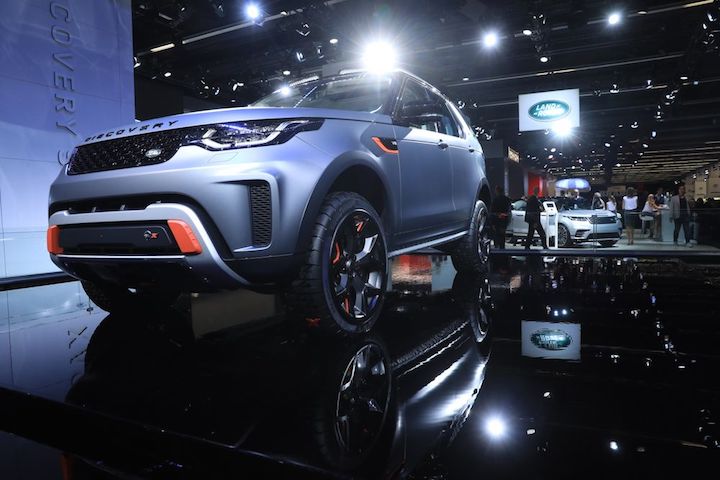Jaguar seeks to block US imports of Porsche, Audi SUVs
You wouldn’t know it was about Jags and Lambos, to judge by its rather dry name: In the Matter of Certain Vehicle Control Systems.
But that’s the complaint Jaguar Land Rover Automotive Plc filed on Thursday to block U.S. imports of Porsche, Lamborghini, Audi and Volkswagen sport utility vehicles it says are using its patented Terrain Response technology without permission.

Jaguar Land Rover, a British carmaker owned by India’s Tata Motors Ltd., said in its filing with the U.S. International Trade Commission that the technology helps negotiate a “broad range of surfaces” and is a key feature in Jaguar’s F-Pace and Land Rover Discovery vehicles.
“JLR seeks to protect itself and its United States operations from companies that have injected infringing products into the U.S. market that incorporate, without any license from JLR, technology developed by JLR and protected by its patent,” Jaguar’s lawyer, Matthew Moore, said in the filing.
Jaguar wants to block imports of Porsche’s Cayenne; Lamborghini’s Urus; Audi’s Q8, Q7, Q5, A6 Allroad and e-tron vehicles; and VW’s Tiguan vehicles. It said there are plenty of other luxury midsize SUV and compact crossover vehicles to meet consumer demand if the SUVs are banned from the U.S.
Still, the premium Porsche and Audi lines provide much of the profit VW is using to fund its investments in technology for electric vehicles, autonomous vehicles and further innovations.
In addition to the four brands, Volkswagen Group owns other upscale nameplates, including Bentley and Bugatti.
The International Trade Commission is an independent, quasi-judicial agency that investigates complaints of unfair trade practices, like patent infringement. It can’t award damages but does have the power to block products from entering the U.S. Owners of patents and trade secrets like it because it can work faster than the federal district courts—the typical investigation is completed in 15 to 18 months.
But Jaguar also filed patent lawsuits against the companies in federal courts in Delaware and New Jersey, seeking cash compensation for the use of the technology. Those cases are likely to be put on hold once the trade commission launches its investigation.
The case is In the Matter of Certain Vehicle Control Systems, 337-3508, U.S. International Trade Commission (Washington).
Similar Stories
United States and Norway issue innovative report creating greater transparency in critical mineral supply chains
Today, the U.S. Department of Commerce and the Norwegian Ministry of Trade, Industry, and Fisheries issued a thorough, innovative report presenting our shared understanding of non-market policies and practices (NMPPs)…
View ArticleDecember CNBC/NRF retail monitor results show strong growth boosted by final Thanksgiving weekend days
Retail sales jumped strongly in December, boosted in part by two busy holiday shopping days during Thanksgiving weekend falling in the final month of the year, according to the CNBC/NRF…
View ArticleNAW presents Dirk Van Dongen Lifetime Achievement Award to Bergman, CEO of Henry Schein, Inc.
At the 2025 NAW Executive Summit Gala on January 28 in Washington, D.C.
View Article
St. Louis region’s chemical industry welcomes new investment
View Article
Navigating compliance: Adapting to changing Customs regulations in global supply chains
View Article
December 2024 U.S. Transportation Sector Unemployment (4.3%) Was the Same As the December 2023 Level (4.3%) And Above the Pre-Pandemic December 2019 Level (2.8%)
View ArticleGet the most up-to-date trending news!
SubscribeIndustry updates and weekly newsletter direct to your inbox!





